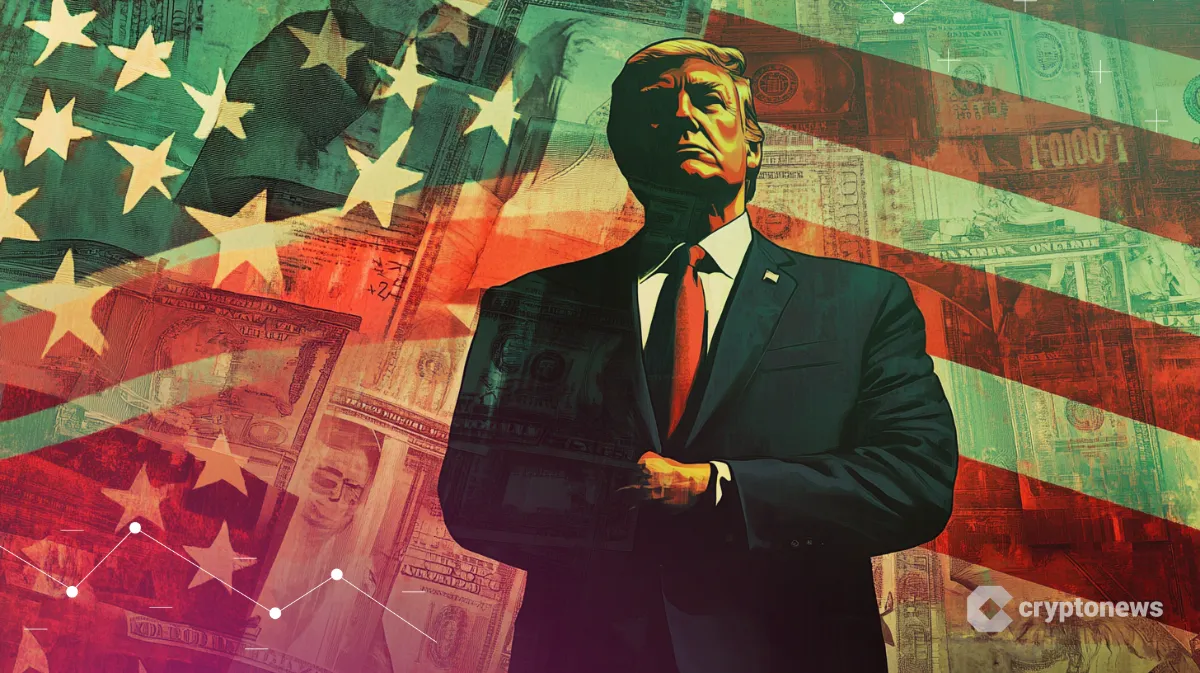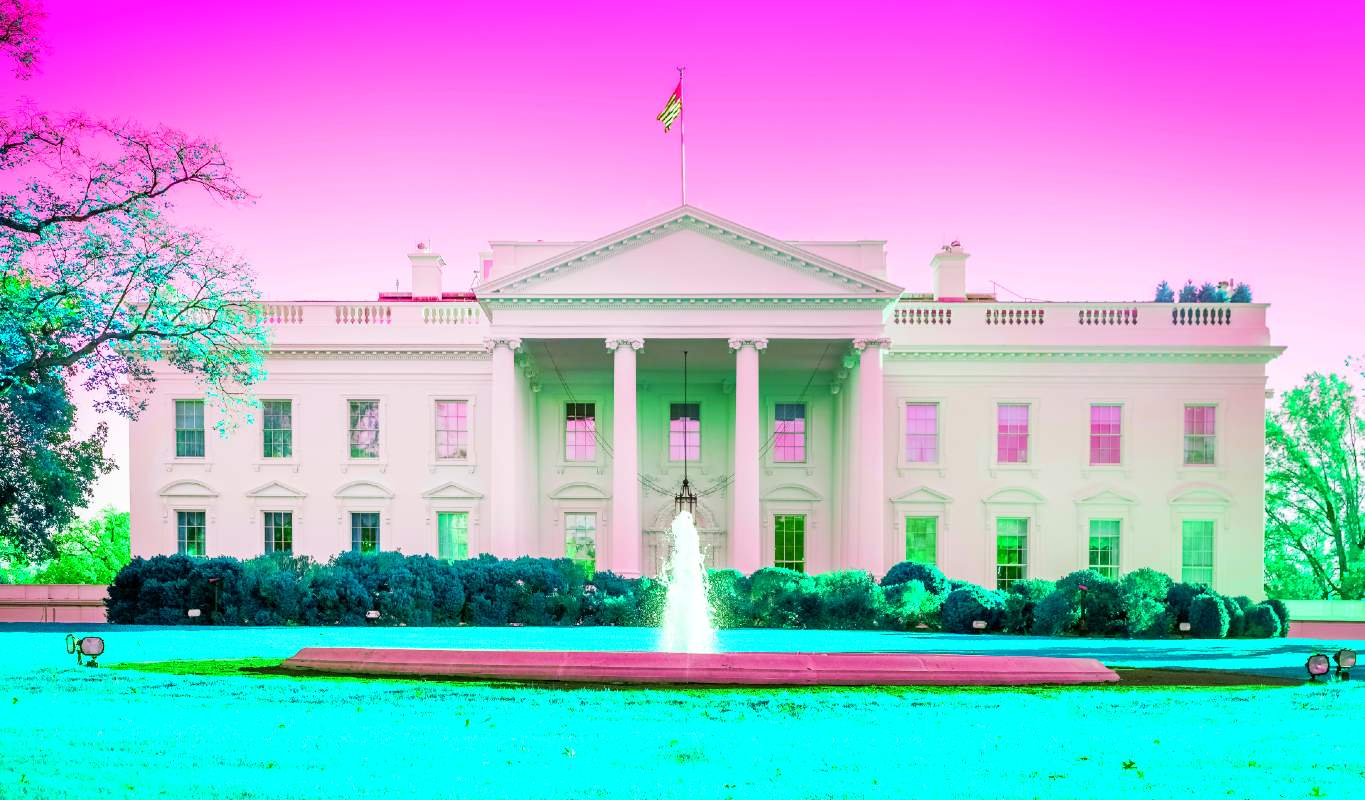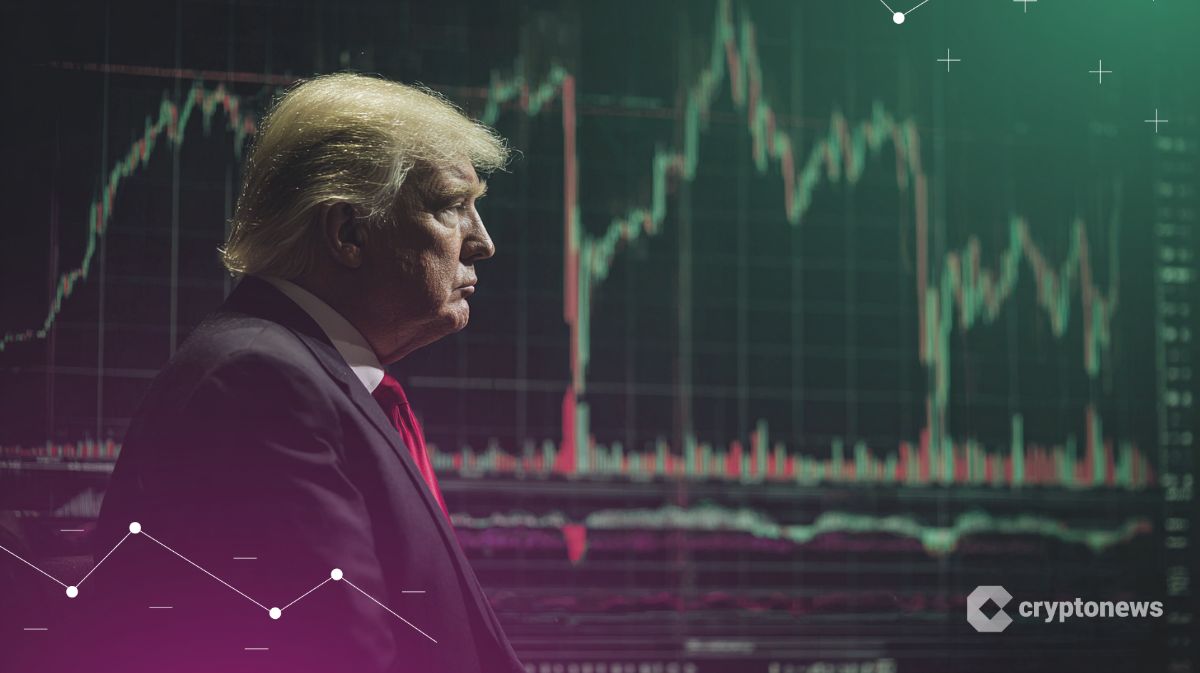Trump Report Calls for Clear Crypto Laws and SEC Rules for Digital Assets

A new White House report released by the President’s Working Group on Digital Asset Markets outlines the Trump administration’s vision for transforming the U.S. into a global leader in cryptocurrency and blockchain innovation.
Formed under Executive Order 14178, the group—comprising senior federal officials—has been tasked with delivering recommendations to shape a clear and supportive regulatory framework for digital financial technologies.
The 166 page report asserts that by embracing these proposals, the U.S. can usher in a “Golden Age of Crypto” and position itself as the undisputed leader in this transformative sector.
The group highlights the need for both legislative and regulatory clarity. It calls on Congress to close gaps in oversight by giving the Commodity Futures Trading Commission (CFTC) explicit authority over spot markets for non-security digital assets, while encouraging the integration of decentralized finance (DeFi) into mainstream financial systems.
Simultaneously, the Securities and Exchange Commission (SEC) and CFTC are urged to provide immediate federal guidance on registration, custody, trading, and recordkeeping—essentially fast-tracking safe access to crypto markets.
Modernizing Financial Infrastructure for the Digital Era
A central theme of the report is the modernization of U.S. financial regulation to support blockchain innovation. The Trump administration claims to have already ended what it refers to as “Operation Choke Point 2.0,” which previously restricted banking access for crypto firms.
The Working Group recommends further reforms to clarify how banks can safely engage in activities like stablecoin issuance, tokenization, and custody services.
It also calls for more transparent pathways for obtaining federal bank charters or Reserve Bank master accounts. Importantly, the report emphasizes that bank capital rules should reflect the actual risk of digital assets—not just their technical architecture—allowing institutions to better serve crypto users without disproportionate regulatory burdens.
Solidifying the U.S. Dollar’s Role in the Digital Age
President Trump’s signing of the GENIUS Act on July 18, marks the creation of the first-ever federal stablecoin framework. The White House sees this as a critical step in strengthening the role of the U.S. dollar in global digital finance.
The report urges regulators to swiftly implement the Act while safeguarding personal freedoms by opposing central bank digital currencies (CBDCs).
To protect privacy and civil liberties, the Working Group supports the Anti-CBDC Surveillance State Act. This legislation would enshrine Trump’s Executive Order banning the creation of a U.S. CBDC, citing concerns over government overreach and surveillance.
Crypto Tax Clarity and AML Modernization
The report stresses the importance of fair and predictable tax treatment for digital assets. It recommends that the Treasury and IRS issue new guidance on topics such as wrapped tokens, staking, and small-scale transactions, while also reviewing outdated guidance on mining and other crypto-related income.
It also encourages Congress to modify tax rules to treat digital assets as a distinct category, adding them to existing frameworks like wash sale rules.
On the anti-money laundering (AML) front, the Working Group advocates for updated Bank Secrecy Act (BSA) guidance, protections for self-custody, and careful regulation of DeFi participants to balance innovation with national security. The report also warns against misuse of regulatory powers to unfairly target lawful crypto activities.
Trump Report Shows Regulatory Shift as Crypto Gains Ground in Washington
Industry leaders welcome growing clarity as U.S. lawmakers and regulators move toward coordinated digital asset rules
Ira Auerbach, Head of Tandem and former Head of Digital Assets at NASDAQ, responded to the release of the Trump administration’s crypto report, highlighting its potential to reshape the regulatory landscape in the U.S.
“Crypto voices are being heard, and Washington’s crypto conversation is evolving into actual rule-making – fuel for the industry’s flywheel,” Auerbach said.
“The report’s roadmap, paired with Congress’s new market-structure and GENIUS stablecoin bills, aims to put the SEC and CFTC on the same field, tells issuers what playbook to run, and signals to the over $250 billion stablecoin sector that the U.S. wants those reserves kept on-shore. Clarity like that doesn’t just cut headline risk; it lures builders, capital, and jobs back to American soil. It is the textbook definition of common-sense regulation,” said Auerbach.
The post Trump Report Calls for Clear Crypto Laws and SEC Rules for Digital Assets appeared first on Cryptonews.
Read More

White House Releases Crypto Report, Presses Regulators To Allow for ‘Golden Age’ Digital Assets: Report
Trump Report Calls for Clear Crypto Laws and SEC Rules for Digital Assets

A new White House report released by the President’s Working Group on Digital Asset Markets outlines the Trump administration’s vision for transforming the U.S. into a global leader in cryptocurrency and blockchain innovation.
Formed under Executive Order 14178, the group—comprising senior federal officials—has been tasked with delivering recommendations to shape a clear and supportive regulatory framework for digital financial technologies.
The 166 page report asserts that by embracing these proposals, the U.S. can usher in a “Golden Age of Crypto” and position itself as the undisputed leader in this transformative sector.
The group highlights the need for both legislative and regulatory clarity. It calls on Congress to close gaps in oversight by giving the Commodity Futures Trading Commission (CFTC) explicit authority over spot markets for non-security digital assets, while encouraging the integration of decentralized finance (DeFi) into mainstream financial systems.
Simultaneously, the Securities and Exchange Commission (SEC) and CFTC are urged to provide immediate federal guidance on registration, custody, trading, and recordkeeping—essentially fast-tracking safe access to crypto markets.
Modernizing Financial Infrastructure for the Digital Era
A central theme of the report is the modernization of U.S. financial regulation to support blockchain innovation. The Trump administration claims to have already ended what it refers to as “Operation Choke Point 2.0,” which previously restricted banking access for crypto firms.
The Working Group recommends further reforms to clarify how banks can safely engage in activities like stablecoin issuance, tokenization, and custody services.
It also calls for more transparent pathways for obtaining federal bank charters or Reserve Bank master accounts. Importantly, the report emphasizes that bank capital rules should reflect the actual risk of digital assets—not just their technical architecture—allowing institutions to better serve crypto users without disproportionate regulatory burdens.
Solidifying the U.S. Dollar’s Role in the Digital Age
President Trump’s signing of the GENIUS Act on July 18, marks the creation of the first-ever federal stablecoin framework. The White House sees this as a critical step in strengthening the role of the U.S. dollar in global digital finance.
The report urges regulators to swiftly implement the Act while safeguarding personal freedoms by opposing central bank digital currencies (CBDCs).
To protect privacy and civil liberties, the Working Group supports the Anti-CBDC Surveillance State Act. This legislation would enshrine Trump’s Executive Order banning the creation of a U.S. CBDC, citing concerns over government overreach and surveillance.
Crypto Tax Clarity and AML Modernization
The report stresses the importance of fair and predictable tax treatment for digital assets. It recommends that the Treasury and IRS issue new guidance on topics such as wrapped tokens, staking, and small-scale transactions, while also reviewing outdated guidance on mining and other crypto-related income.
It also encourages Congress to modify tax rules to treat digital assets as a distinct category, adding them to existing frameworks like wash sale rules.
On the anti-money laundering (AML) front, the Working Group advocates for updated Bank Secrecy Act (BSA) guidance, protections for self-custody, and careful regulation of DeFi participants to balance innovation with national security. The report also warns against misuse of regulatory powers to unfairly target lawful crypto activities.
Trump Report Shows Regulatory Shift as Crypto Gains Ground in Washington
Industry leaders welcome growing clarity as U.S. lawmakers and regulators move toward coordinated digital asset rules
Ira Auerbach, Head of Tandem and former Head of Digital Assets at NASDAQ, responded to the release of the Trump administration’s crypto report, highlighting its potential to reshape the regulatory landscape in the U.S.
“Crypto voices are being heard, and Washington’s crypto conversation is evolving into actual rule-making – fuel for the industry’s flywheel,” Auerbach said.
“The report’s roadmap, paired with Congress’s new market-structure and GENIUS stablecoin bills, aims to put the SEC and CFTC on the same field, tells issuers what playbook to run, and signals to the over $250 billion stablecoin sector that the U.S. wants those reserves kept on-shore. Clarity like that doesn’t just cut headline risk; it lures builders, capital, and jobs back to American soil. It is the textbook definition of common-sense regulation,” said Auerbach.
The post Trump Report Calls for Clear Crypto Laws and SEC Rules for Digital Assets appeared first on Cryptonews.
Read More

